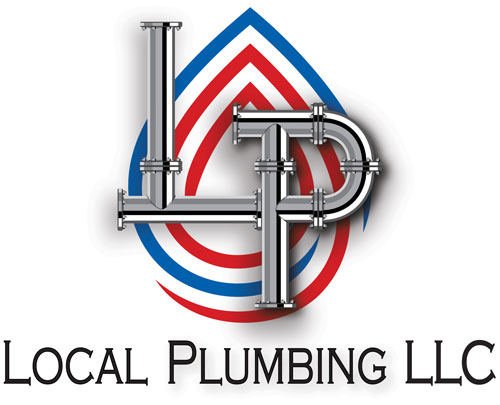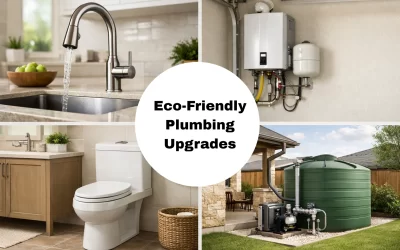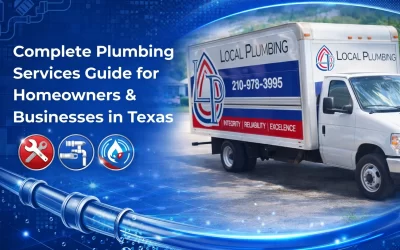In hard water, calcium and magnesium levels are high, which can lead to problems such as clogged pipes, reduced water heater efficiency, damaged appliances, and more. According to the Water Quality Association Report 2024, over 85% of homes in the United States are affected by hard water. The costs associated with hard water are significant: the Battelle Memorial Institute estimates that hard water can reduce the lifespan of household appliances by 30% and increase energy bills by up to 24%.
Challenges associated with hard water increase maintenance costs and significantly decrease the lifespan of plumbing systems. Fortunately, expert plumbers in Schertz deploy advanced techniques to tackle these issues effectively and ensure your plumbing system remains in top condition. Before discussing these techniques, have a look at the effects of hard water on your plumbing systems!
Effects of Hard Water on Plumbing Systems
Here are some of the top effects of hard water on your plumbing systems:
1. Scale Buildup
Over time, the scale accumulates inside your water pipes, causing a range of problems that can affect your home plumbing system. Below are the problems associated with this:
- Slow Drains: This buildup can narrow the pipe diameter and result in slow-moving drains, even standing water in sinks and bathtubs.
- Reduced Water Pressure: Restricted water flow leads to weak water pressure in showers and faucets, making tasks like washing hands or taking a shower less effective.
- Clogged Pipes: Severe scale buildup can completely obstruct water flow through pipes, leading to total blockages.
- Valve Malfunction: By impeding their movement, scale deposits can cause valves to malfunction and result in leaks and other plumbing issues.
2. Corrosion
While hard water is not as corrosive as soft water, it can still contribute to the corrosion of plumbing systems, especially when combined with other factors such as high water temperature and the presence of oxygen. Damage caused by corrosion to pipes and fixtures can lead to leaks and structural problems that can be expensive to repair.
3. Reduced Water Heaters Efficiency
Scale buildup inside water heaters is a common problem in areas with hard water. The minerals in hard water form a layer of insulation on the heating elements. It further makes it harder for the water heater to transfer heat efficiently and leads to factors like increased energy consumption and higher utility bills.
4. Appliances Damage
Hard water can cause significant damage to household water appliances such as dishwashers, coffee makers, and washing machines. The mineral deposits can clog valves and reduce the efficiency of these appliances. If not paid attention to on time, then it can cause frequent breakdowns and an appliance shorter lifespan.
5. Unpleasant Taste and Odor
Hard water often has a distinct taste and odor due to the presence of minerals. While not harmful to health, the taste and smell can be unpleasant, especially when drinking water or preparing food and beverages.
Different Advanced Techniques to Keep Your Plumbing Healthy for Hard Water Challenges
To keep your plumbing system safe from the above issues. Have a look at the different techniques that can be used to overcome these:
1. Ion Exchange Water Softening
One of the most popular and effective methods to combat hard water is ion exchange water softening. This process involves exchanging calcium and magnesium ions, which cause water hardness, with sodium or potassium ions. The result is softened water that is gentler on plumbing systems and more effective for cleaning and bathing.
By preventing the accumulation of hard water deposits, a water softener helps maintain optimal water flow, improves the water heater efficiency, and prolongs the lifespan of plumbing systems and appliances.
2. Reverse Osmosis
It is another advanced technique used to address hard water problems. Using this method, water is forced through a semipermeable membrane that removes hardness-causing minerals and other impurities. RO systems are highly effective in providing clean, soft water and are often used with other treatment methods for optimal results.
3. Sediment Filters
These filters help in removing particles such as silt, sand, and rust from your water supply before they can damage your plumbing fixtures and appliances. By preventing these particles from entering your plumbing system, it helps reduce the risk of clogs and wear, extending the life of your pipes and improving water quality. They are often used in conjunction with other water treatment methods by professional Schertz plumbers to ensure comprehensive protection.
For professional plumbing services, choose Local Plumbing LLC. Our expert plumbers in Schertz offer repair and installation services for water softeners. These systems ensure the removal of all mineral deposits from pipes and other fixtures and enhance water quality. Our licensed and highly trained plumbers serve Schertz and other areas in Texas. If you are looking for a Cibolo Plumber, a New Braunfels Plumber, or a plumber in San Antonio, we also serve those areas from our multiple locations.
Conclusion
Choose the most reliable method to combat hard water issues from the ones listed above. Ensure you seek help from experts who have a proven record of experience in the industry. You can also check Yelp, Facebook, and Google ratings to confirm your decision. Remember, with the right plumber on your side, you can get rid of these issues easily and effectively.




